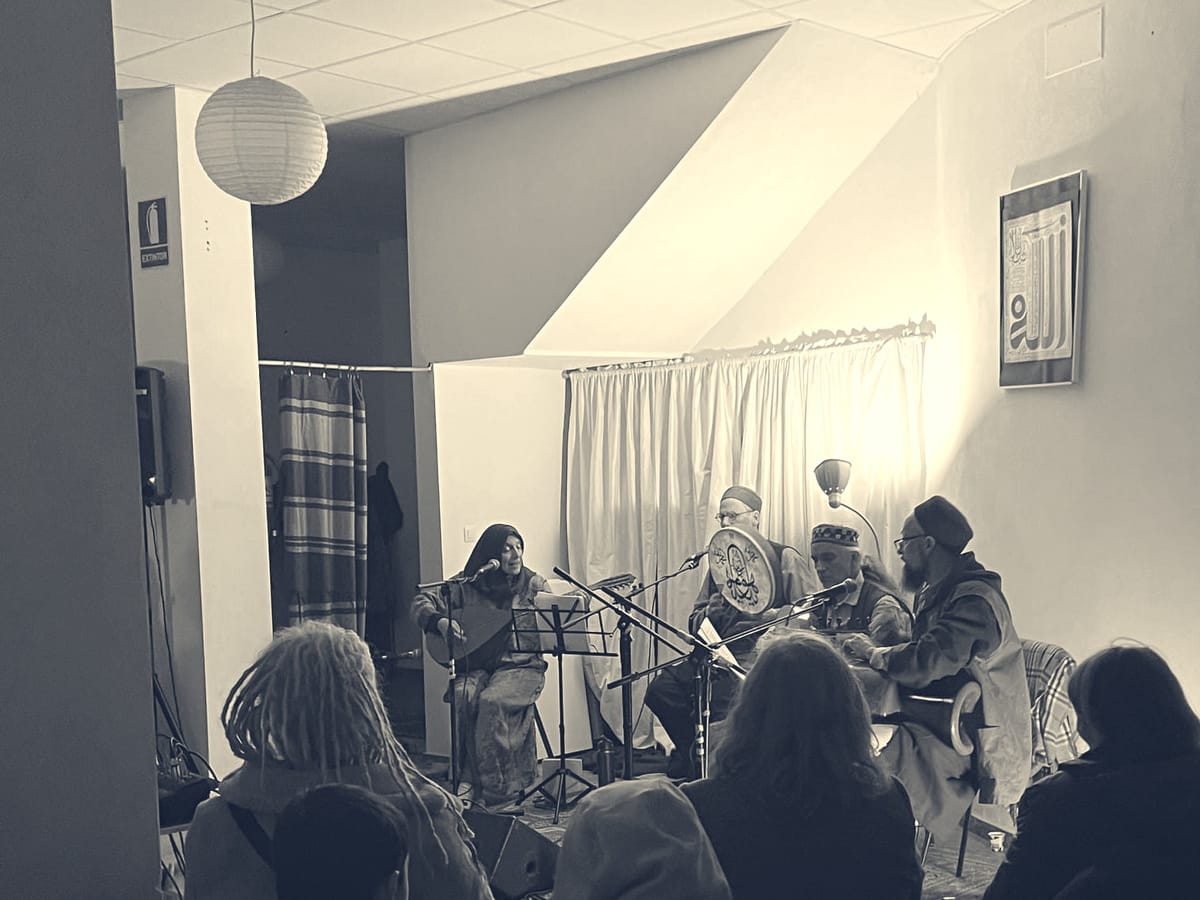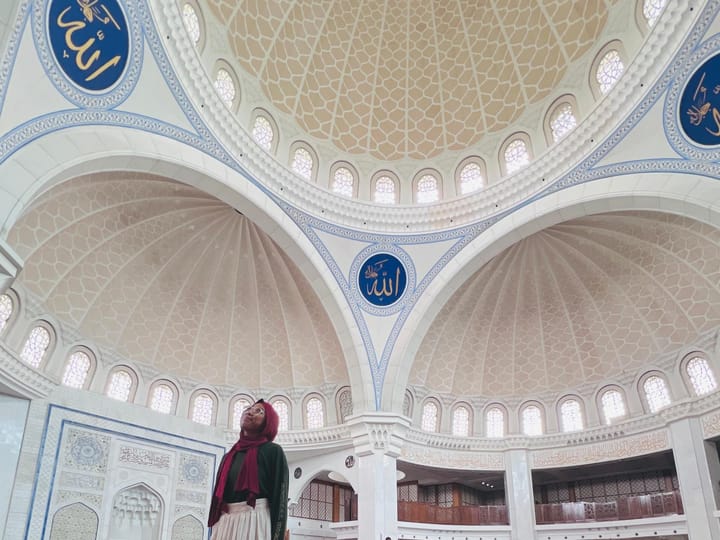Qasida and Nasheed Spotify Playlist for Motivation and Sufi Healing

During my time at Cortijo Azahara, I got to immerse myself in the Sufi community. Besides their devotion and submission to the One God through prayers and good actions, they also praise the Prophet Muhammad ﷺ through Qasida (poetry or ode). It's similar to Nasheed (hymns to praise God) but the difference is that Nasheed is strictly without musical instruments.
Is Music Permissible in Islam?
There are differing viewpoints on whether musical instruments are permissible.
Here is a summary of the various scholars perspectives:
- Strict Prohibition: Some scholars and Islamic traditions strictly prohibit music, considering it haram (forbidden). This view is often based on interpretations of certain hadiths that criticise musical instruments and singing. Scholars like Ibn Taymiyyah and certain contemporary Salafi and Wahhabi scholars hold this position.
- Conditional Permissibility: Other scholars permit music under certain conditions, arguing that not all music is inherently haram. They often differentiate between types of music and their contexts. Music that promotes immoral behavior, distracts from religious duties, or contains inappropriate content is generally considered impermissible. However, nasheeds (Islamic vocal music) and music with positive, religious, or morally acceptable themes may be allowed. This view is common among many traditional Sunni scholars.
- Permissibility with Restrictions: Some scholars and schools of thought, such as the Hanafi and Maliki schools, take a more lenient approach. They may allow music and musical instruments, especially if the music does not lead to sinful behavior and is used in moderation. They emphasise intention and context, arguing that music can have a positive influence if it promotes good values.
- Complete Permissibility: A minority of scholars and modernists advocate for the permissibility of all forms of music, provided it does not lead to immoral actions. They argue that the Quran does not explicitly prohibit music and that the hadiths on music are subject to different interpretations. They view music as a cultural and artistic expression that can be used positively.
- Sufi Perspective: In Sufism, music and dance are often used as means of spiritual expression and attaining closeness to God. Practices like sama' (spiritual listening) and whirling (associated with the Mevlevi order) are examples of how music is integrated into devotional practices. Sufi scholars and practitioners generally support the use of music for spiritual purposes.
Basically, the main difference between the strict and liberal opinions is the interpretation of the hadiths. The Quran does not explicitly prohibit music but warns against idle talk and carelessness. The more moderate or liberal views allow music under specific conditions i.e. it being beneficial or devotional.
For me, I agree that certain music can be detrimental and I'm more intentional with what I consume. As such, I feel that music that brings about the remembrance of God and does not portray immorality can be beneficial. To me, music also includes the stomping of the feet, clapping of the hands, birdsong, rustling of leaves, and so on.
And using my voice to praise Allah and His Messenger – learning and singing Qasida – has healed my heart and helped me feel closer to God.
What Is A Qasida?
A Qasida is a form of lyrical poetry that originated in pre-Islamic Arabia and later became popular in the Islamic world, including Persian, Turkish, and Urdu literature. It's typically a long poem but you can find short ones too and maintains a single end rhyme throughout. Besides praising God, it can also include themes of love, nature, and personal reflection.
Listen and Remember with My Spotify Playlist
At Azahara, a Qasida was always sung or recited in a group.
With the lyrics in hand and a person leading, we would fall into synchronicity, even if it's our first time learning the melody.
It was never complicated and always gratifying.
After my time at Azahara, I searched for the odes on Spotify so I may remember. I've compiled a playlist so you can listen too!
The following are links to a collection of Qasida with lyrics in Arabic plus the English translation.




Comments ()